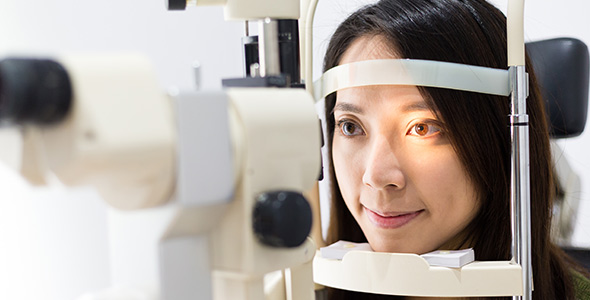Cataracts are one of the main causes of blindness in older people. A lot of adults can initially be fooled by symptoms of cataracts; yet as vision gets worse, many patients see their eye doctor. If an eye exam shows you have this condition, you need to know what to expect, and prepare for cataract surgery.
Symptoms & Effects Of Cataracts
When you have a cataract, the lens of your eye becomes clouded. You can confirm the condition when whatever you are looking at appears blurry. However, blurriness is often not the first sign when the cataract is located at the center of your eye’s lens.
Sensitivity to light is another common symptom. You may have less tolerance for bright lights and glare. As a cataract affects the way light enters your eye, it can seem as if there are halos around any type of light. As your night vision can be affected, it is unwise to drive at night.
Your eyesight may deteriorate rapidly; and you’ll need new eyeglasses more frequently than you did in the past. You can also start to experience double vision. You may be seeing multiple images of individual objects.
If cataracts are allowed to progress, it’ll be easy to see color changes in your vision. The cataract itself can take on a brownish or yellowish tint.
If you experience any of these signs of cataracts, consult with your eye doctor immediately. All it takes is a simple exam to confirm cataracts. He or she may then schedule you for cataract surgery.
Cataract Surgery Procedure & Recovery
Cataract surgery is a common procedure. The affected lens will be removed, and it will be replaced by an artificial lens. In most cases, the only anesthesia needed is topical anesthesia. The eye drops will numb your eyes during surgery. You will also be given a sedative to relax during the procedure.
While the length of time it takes to complete cataract surgery depends on the specific procedure, a procedure may not take more than ten minutes. You can rest for approximately 30 minutes, and have someone drive you home.
Complications are rare, and recovery is usually uneventful. You must keep your eye covered for a week after your surgery. You can wear eyeglasses or a special shield for this purpose. You should avoid strenuous activity so there is no excessive pressure to your eye.
You will have eye drops to prevent infection and inflammation. When your eye has had the chance to heal, you will visit your doctor for a follow-up. You will be given a prescription for a new pair of eyeglasses. Almost everyone who has cataract surgery needs to wear glasses after the procedure.
The good news is that cataract surgery rarely needs to be repeated. Unless the lens becomes dislocated, the lens will last for the rest of your life.
Cataract surgery is the most common type of eye surgery. Most surgeons who perform these procedures have performed thousands of surgeries.
If you are experiencing problems with your eyes or eyesight, and notice you have symptoms of cataracts, don’t let these issues fool you; it’s in your best interest to see your eye doctor for an exam. Cataract surgery is a simple procedure that can ultimately save your eyesight.
Contact us for a cataract surgery consult.





